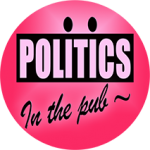DID YOU HAVE ANY IDEA? with Jonathan HOLMES from CaTV on Vimeo.
I’m doing this interview just one day after Julian Assange was given a Walkley award for the most outstanding contribution to journalism, and I guess one of the big questions about Wikileaks and Julian Assange has been: “Is he a journalist?”.
I don’t think there’s any doubt that what Wikileaks has done is journalism. After all, journalism is about two things:
- collecting information; finding out what’s happening; especially, finding out about stuff that other people don’t want you to know;
- processing that information in one way or another and putting it out to the public.
What Wikileaks does primarily is the first of those two functions, much more than the second, although… The famous video of the Apache helicopter was highly sculpted and some people felt even, highly slanted in the way it was presented.
But that’s the secondary function of Wikileaks; the first is: by protecting sources; by making it possible to “leak” stuff anonymously, it has produced an extraordinary number of stories in the last 3 or 4 years that nobody else remotely begins to match anywhere else in the world.
And if that doesn’t make you an important journalist, I don’t know what is.
What is extraordinary to me… I mean, clearly Julian Assange is not an easy person to work with. I think one can deduce that just from the number of people who started working with him and now, seem to have turned against him, within Wikileaks and in places like The Guardian and the New York Times. That’s a personality issue.
What I find extraordinary is that some of those prominent media organisations that have profited hugely from the work that Wikileaks has done, and especially the New York Times, and Bill Keller and the editor-in-chief of the New York Times, is that they have not only turned against him. It seems to me that they have deliberately gone out of their way to make him vulnerable to prosecution by the United States authorities, under the espionage act. They’ve done this by denying that he’s a journalist.
Everybody knows that under the First Amendment, it’s extremely difficult to prosecute journalists in the US. The Pentagon Papers proved that newspapers that published secrets that was taken in an unauthorised way were not liable to prosecution. Their sources might be… they are not. So the distinction between people who are journalists receiving material from sources, and people who are sources giving material to journalists is absolutely crucial. And yet Bill Keller, knowing that, comes out and says that as far as he’s concerned, Wikileaks and Julian Assange are just sources.
He might as well say: “Do your worst Mr Attourney General. We the NYT with all our clout will not go out of our way to protect the person who has given us all of this extraordinary material.”
I even remember reading, either in The Guardian or the NYT, but certainly one of them, that Julian Assange was “coy” about whether Bradley Manning was his source, or the source of the US State Department cables. What a bizarre thing for a journalist to say about another; to say that they are “coy” about revealing their sources. Of course Julian Assange is coy about realign his sources. That is the entire point about Wikileaks.
Of course he has never admitted that Bradley Manning is his source, and nor should he, and for all I know, Bradley Manning isn’t his source, although it seems, on the face of it, from what we know, likely. But there’s no way that Julian Assange is going to tell anybody that; not even the people with whom he’s sharing the journalistic effort.
So I really don’t understand what the mainstream media are playing at. I suspect that this is a form of curious jealousy. They are nervous about the world of the internet; nervous about the proliferation of journalism on the internet; they are jealous of guarding their position as the gate-keepers, as the people who mediate between the public and information, and of course Assange has always believed that mediation should be kept to a minimum, and the job is just to get the stuff out there.
That’s an argument anyone can have, but if you’re going to receive information from a source like Wikileaks but deny that the person who set that up is a journalist, in the full knowledge that that makes them more vulnerable to prosecution, I don’t know how you can sleep at night.

